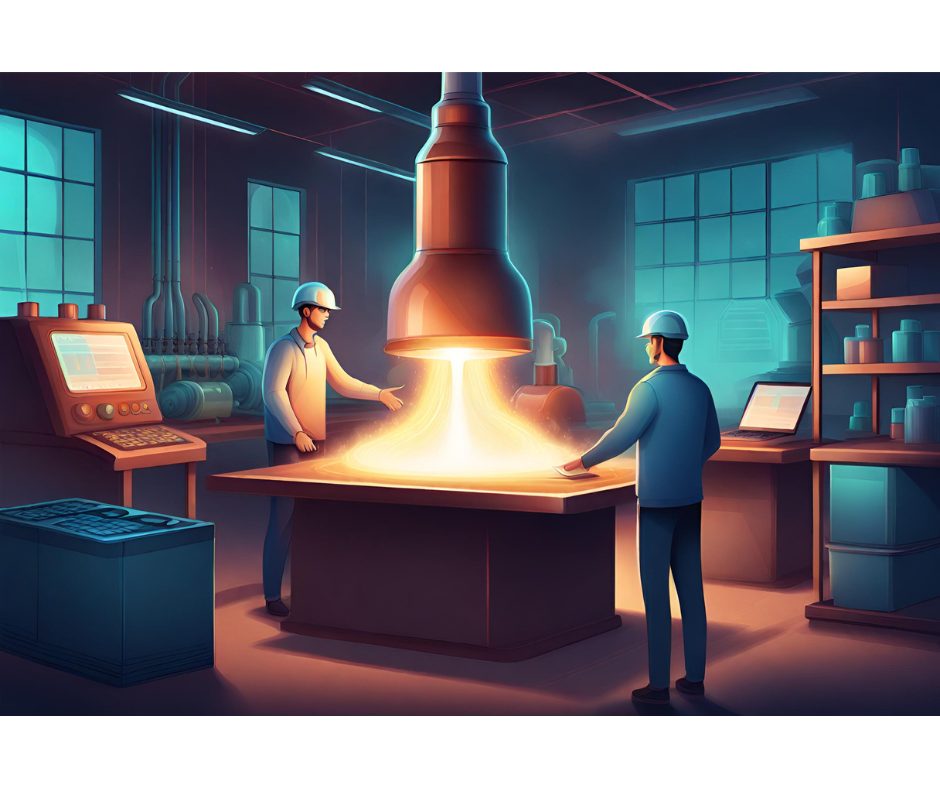With competition in the job market reaching extreme levels, candidates try everything possible to land their dream job. Some candidates have no qualms about resorting to the falsification of various documents, including educational credentials. Yet, most employers run mandatory background checks to verify the education of job applicants. Some verify the authenticity and credibility of all the documents submitted during the interview, including academic history and various claims made in their resume. For those seeking assistance with their resumes or needing help to articulate their academic and professional journey accurately, the option to hire essay writer professionals can be a legitimate and ethical pathway to presenting their best self on paper.
Verification of educational background can help organizations separate genuine applicants from those who have resorted to unfair means to get selected. Background screening of candidates will also protect organizations from liability.
Are you doing an educational background check for the first time? Are you not familiar with the processes and the rules guiding such checks?
Educational Background Check – What It Is and How Is It Done
An education background check is a process of verifying the education claims of an applicant. It helps in ascertaining whether the candidate’s claim of having earned specific certificates and degrees at high schools and colleges.
What Shows Up in an Education Background Check
An educational background check can reveal
- Name of the degrees earned
- The year awarded
- The college/university they studied
There are no restrictions on employers for verifying the educational qualifications of employees. Likewise, they can go back as far as they need to access official records.
Also, Employers can go for verification of a candidate’s qualifications, regardless of when they have received the degrees and diplomas.
Some employers may request verification of information specific to the position they are hiring the candidate for. For instance, if an educational institution is hiring a teacher for higher education, they can verify the certificate/diploma/degree that qualifies the applicant to apply for that position.
Usually, an education background check is not done to verify licenses. If the employers need confirmation that a candidate has the credentials to work in a specific field, they can opt for background screening or professional screening.
How Do Employers Conduct Education Verification?
Not all employers perform education verifications. One of the most common reasons for not performing education verification is that employers think the process is too complicated. But that’s not true. In reality, education verification is a very simple
In reality, the process is quite simple. It involves collecting basic information from the applicant. It includes:
- The full name of the candidate
- The name of the institution from where the degree is obtained
- The dates of the course
- The title and field of their degree
- A signed authorization from the candidate
Most candidates are familiar with the hiring process if they have been in the job market for some time. They will be ready to give you this information.
Independent Verification through a Third-Party Service
So what is the next step in how employers verify education? Once you have obtained the information from the previous step, the next step is verification.
The best way to do this is to hire a third-party education verification service. They specialize in the verification of the credentials of applicants. They also take up the matter directly with the institutions. Hiring a third party for the process can save you time and effort. Their background screening is professionally done, and the results are always reliable.
Going Beyond Screening of Academic Achievements
Undoubtedly, as a reputed and responsible organization, you must verify the educational history of all applicants. However, there are other things also that you should worry about, such as the applicant’s
- Personal and family background
- Previous professional experience
- Credit history and others
Positive outcomes from such checks will ensure you hire employees with impeccable academic, professional, and personal credentials.
How Long Does It Take to Verify Education
Some organizations skip the verification process completely because they believe it is both hassling and time-consuming. That’s not true.
Some skip the verification step because they have to fill the job opening urgently and are unwilling to wait until the educational verification reports come in.
Skipping the vital education verification step is definitely not a good idea. Regardless of the urgency of hiring, it is well worth it to complete the verification process instead of discovering later that the candidate lied to you to land that crucial job. It will save you and the hiring department the pain and hassle of going through the long-drawn and expensive hiring process again.
It needs to be noted that running education background checks for employment doesn’t take much time. You can expect the verification results within a few days unless you have procedures in place that drag out the process.
Legal Considerations and Compliance
When it comes to educational background checks, it’s crucial for employers to understand and follow the legal rules. This ensures the process is fair and respects the rights of job candidates. Let’s dive into some key legal considerations and compliance requirements that employers need to keep in mind.
Understanding the Fair Credit Reporting Act (FCRA)
The Fair Credit Reporting Act, or FCRA, is a vital law in the United States that impacts how educational background checks can be conducted. This law requires employers to get written consent from the candidate before starting the check. This means if you’re applying for a job, your potential employer must ask for your permission before looking into your educational records.
Moreover, if an employer decides not to hire someone based on what they find in the background check, they must inform the candidate. This process, known as adverse action, involves providing the candidate with a copy of the report and a summary of their rights under the FCRA. This ensures candidates know why they weren’t selected and have a chance to correct any mistakes in their records.
Respecting Privacy and Accuracy
Employers must respect candidates’ privacy when verifying educational backgrounds. They should only seek information relevant to the job. For example, if a certain level of education is necessary for the job, then verifying that specific credential is reasonable. But diving into unrelated educational details might not be.
Accuracy is also crucial. Employers should ensure the information they obtain is correct. This helps avoid unfair decisions based on wrong information. If there are errors in the educational records, candidates should be given the chance to fix them.
State-Specific Laws
While the FCRA is a federal law, many states have their own rules about background checks. Employers need to be aware of these state-specific laws, as they can add extra requirements or restrictions. For example, some states might have stricter rules about obtaining consent or using educational information.
International Considerations
For candidates who studied abroad or for international companies, there are additional layers of legal considerations. Different countries have different privacy laws and data protection regulations. Employers should understand these laws to ensure their background checks are legal worldwide.
Ethical and Non-Discriminatory Practices
It’s essential that educational background checks are done ethically and without discrimination. This means all candidates should be treated equally. The checks should be used solely to verify claimed educational credentials related to job requirements. They shouldn’t be used to unfairly exclude candidates based on age, race, gender, or other unrelated factors.
Educational background checks are a valuable tool for employers. However, they must be conducted within the legal framework to ensure fairness and respect for candidates’ rights. By adhering to laws like the FCRA, respecting privacy, ensuring accuracy, understanding state and international laws, and committing to non-discriminatory practices, employers can conduct these checks responsibly. This not only protects the candidates’ rights but also helps maintain the integrity and reputation of the hiring organization.
Impact on Candidates and Employers
Educational background checks significantly affect both job-seeking candidates and the employers making hiring decisions. Understanding these impacts helps ensure that the process benefits both parties, fostering fair and informed employment practices.
For Candidates
Transparency and Honesty – It’s vital for job seekers to be transparent and honest about their educational background. Misrepresentations or inaccuracies, intentional or accidental, can lead to adverse outcomes, such as the withdrawal of a job offer or termination from a position. Candidates should ensure that the information provided on resumes or applications accurately reflects their educational history.
Preparation and Verification – Candidates should prepare for educational background checks by having relevant documentation, like transcripts or diplomas, especially if they studied abroad or have unique educational circumstances. Proactive preparation can speed up the verification process and resolve any discrepancies quickly.
Understanding Rights – Candidates should be aware of their rights under laws such as the FCRA. This includes the right to consent to background checks, the right to be informed if information from the check is used against them, and the right to dispute inaccuracies. Awareness of these rights ensures candidates can effectively advocate for themselves.
For Employers
Informed Hiring Decisions – Conducting educational background checks allows employers to make more informed hiring decisions. Verifying the educational credentials of candidates ensures they meet job qualifications and possess necessary skills and knowledge, leading to successful hires and reduced turnover.
Risk Mitigation – Employers can mitigate potential risks associated with negligent hiring by conducting thorough background checks. Verifying educational information helps prevent hiring unqualified candidates, which can lead to performance issues, legal liability, and damage to the company’s reputation.
Fairness and Consistency – Employers must apply educational background checks consistently and fairly to all candidates to prevent discrimination. Clear policies and procedures for conducting and evaluating checks ensure all candidates are treated equally and judged based on relevant, job-related criteria.
Maintaining Compliance – Employers need to stay informed about legal requirements and ensure compliance when conducting background checks. This includes obtaining proper consent, respecting candidates’ privacy, and adhering to equal employment opportunity guidelines. Compliance not only protects candidates’ rights but also shields employers from potential legal repercussions.
The impact of educational background checks extends beyond mere verification of academic credentials; it encompasses fairness, transparency, and legal compliance in the hiring process. For candidates, the emphasis is on accuracy and understanding their rights. For employers, the focus is on conducting checks responsibly, consistently, and within legal bounds. By addressing the impacts on both parties, the educational verification process can enhance the overall hiring landscape, ensuring a more transparent, fair, and effective selection process.
Navigating Challenges in Education Verification
Educational background checks, while beneficial, can present challenges for both employers and candidates. Understanding and navigating these challenges is crucial for a smooth and fair hiring process. Here, we explore common obstacles and provide guidance on how to address them effectively.
For Candidates
Discrepancies and Inaccuracies – Occasionally, discrepancies between a candidate’s claims and the verification results can occur due to errors in records or misunderstandings. If you face this situation, provide additional documentation or clarification to resolve the issue promptly. Maintaining accurate records and being proactive in rectifying discrepancies can help avoid misunderstandings.
Privacy Concerns – Some candidates may have concerns about privacy and the security of their personal information during the verification process. It’s important for candidates to understand what information will be verified and how it will be used. Ask employers about their privacy policies and ensure your data is handled securely and in compliance with relevant laws.
International Credentials – Candidates with degrees from international institutions may find that verification takes longer or is more complicated due to differences in educational systems and record-keeping practices. If you have international credentials, provide as much detailed information as possible and consider obtaining official documents or translations in advance.
For Employers
Verifying International Degrees – Verifying education credentials from abroad poses challenges, such as language barriers and different educational standards. Employers should use specialized verification services familiar with international education systems and ensure they understand the equivalency of foreign degrees to domestic qualifications.
Delayed Verifications – Background checks, including educational verifications, can be delayed due to various reasons like slow response times from institutions or incomplete information from candidates. Employers should set realistic timelines and communicate with candidates about any delays. Building extra time into the hiring schedule for verifications can prevent undue pressure and rushed decisions.
Legal and Compliance Issues – Employers must navigate a complex landscape of laws and regulations when conducting educational background checks. Staying informed about legal obligations, particularly regarding consent and privacy, is critical. Employers should seek legal counsel or work with reputable third-party services to ensure compliance with all applicable laws and regulations.
Candidate Pushback – Some candidates may view educational background checks as intrusive or unnecessary. Employers can address this by explaining the purpose and importance of verification in maintaining fair hiring standards. Clear communication about what is being verified and why it matters can help alleviate candidate concerns and foster a transparent hiring process.
Navigating the challenges of educational background checks requires preparation, transparency, and a commitment to fairness from both candidates and employers. By understanding potential obstacles and adopting best practices for addressing them, both parties can contribute to a verification process that is thorough, fair, and respectful of privacy and legal standards. Ultimately, overcoming these challenges can lead to more informed hiring decisions and a more trustworthy and efficient recruitment process.
Conclusion
Navigating the verification of educational qualifications is a critical step in the hiring process. Employers leverage background checks to ensure the integrity and honesty of their potential employees. In today’s competitive job market, the temptation for candidates to embellish or falsify their educational achievements is real. However, this can lead to significant repercussions for businesses, including compromised work quality, damaged reputation, and legal consequences.
Through diligent education verification, employers can sift through the façade to identify candidates who truly possess the credentials they claim. This process goes beyond merely confirming degrees or certificates; it’s an investment in the company’s future, ensuring that new hires are not only qualified but also bring a level of trustworthiness to their roles.
Moreover, an educational background check serves as a form of risk management, protecting the organization from potential fraud and the liabilities associated with inaccurate or deceitful information. It upholds the organization’s standards, contributing to a culture of integrity and excellence.
A candidate who passes this thorough vetting process and demonstrates the proper qualifications becomes a valuable asset, justifying the employer’s choice and investment. They are more likely to perform their job effectively, advance the organization’s goals, and maintain the high standards expected of them.
In conclusion, educational background checks are more than just a formality; they are a fundamental component of a robust hiring strategy. They ensure that candidates stand behind their claims, embodying the honesty and proficiency required for the position. For employers, implementing a consistent and comprehensive verification process is essential for making informed hiring decisions that contribute to the long-term success and integrity of the organization.
FAQ Section on Education Verification by Employers
How do employers verify education?
Employers typically verify education by contacting the educational institutions listed on a candidate’s resume or application. They may request transcripts, a diploma, or a degree certificate directly from the institution. Some employers use third-party verification services to streamline this process.
How do companies check if you have a degree?
Companies check if you have a degree by contacting the educational institution you attended. They may ask for proof of graduation, such as a copy of your degree or transcript. Alternatively, companies might use verification services that have access to educational databases.
What happens if an employer cannot verify education?
If an employer cannot verify your education, they may ask you to provide additional documentation or information. If the education credentials still cannot be verified, the employer may consider this a red flag, potentially affecting your job offer or current employment status.
Does Accurate verify education?
Yes, Accurate, a background check service, can verify education as part of their screening process. They check the candidate’s educational history, including degrees and certifications claimed, by contacting educational institutions or using verified databases.
Do jobs actually check your degree?
Many jobs do check your degree, especially if the position requires specific educational qualifications. The extent of the verification can vary based on the employer, the role, and the industry.
What if I lied about my education on my resume?
Lying about your education on your resume can have serious consequences. If discovered, it can lead to your job application being rejected or, if already employed, termination from your position. It can also damage your professional reputation.
How often do companies check education?
The frequency with which companies check education can vary. Most commonly, education is verified during the hiring process, especially for positions where a specific degree or educational background is a requirement. Some companies may also perform checks during internal audits or promotions.
How does Accurate Background check verify employment history?
Accurate Background verifies employment history by contacting past employers listed on the candidate’s resume or application. They may verify dates of employment, positions held, and sometimes reasons for leaving or eligibility for rehire. They can also use electronic verification methods where they access employer databases to confirm employment details.
Do jobs check your GPA?
Some jobs, particularly those in highly competitive fields or industries that place a significant emphasis on academic performance, may check your GPA. However, not all employers consider GPA a critical factor, and some may not check it at all, focusing instead on work experience and skills.











